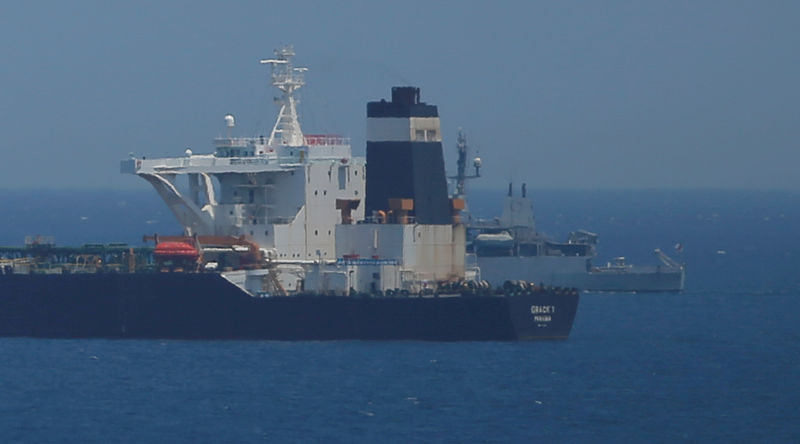By Guy Faulconbridge
LONDON (Reuters) - Gibraltar was granted the power on Friday to detain Iran's Grace 1 oil tanker for another month, keeping the vessel at the centre of a big-power quarrel between Iran and the United States and its allies.
Gibraltar said the Iranian vessel, seized by marines in a daring landing in darkness off the coast of the British territory on July 4, was suspected of smuggling oil to Syria in breach of European Union sanctions.
Iran has repeatedly called for the ship's release, denies the allegation that the tanker was taking oil to Syria in violation of sanctions and says Gibraltar and Britain seized the vessel on the orders of Washington.
"At a private meeting of the Supreme Court on an application by the Attorney General, the Court has extended the period of detention of the vessel, Grace 1, for a further 30 days and has set a new hearing for 15 August 2019," the Gibraltar government said on Friday.
Gibraltar denies that it was ordered to detain the vessel, which was carrying up to 2.1 million barrels of oil, but several diplomatic sources said the United States asked the United Kingdom to seize the vessel.
The vessel is now seen as a pawn in the standoff between the Islamic Republic and the West, with its fate tangled in the diplomatic differences between the EU's big powers and the United States.
"This tanker is important because it is part of the wider tensions between Iran and the United States," said Sanam Vakil, senior research fellow at Chatham House in London.
"The EU 3 – including the UK – are caught in between, trying to save the Iran nuclear deal while also managing pressure from Washington," she said, referring to Germany, France and Britain. "So there is a big divergence of strategy on how to proceed and this tanker is a reflection of those divergences."
Iranian hardliners have repeatedly threatened to seize British shipping in retaliation for what they cast as London's piracy and Britain last week said it had fended off Iranian ships that tried to block a British tanker.
But Britain, which wants to preserve the nuclear deal, has repeatedly indicated it wants a compromise over the tanker.
Foreign Secretary Jeremy Hunt said Britain "would facilitate release" of the Iranian supertanker "if we received guarantees that it would not be going to Syria, following due process" in Gibraltar courts.
On Thursday, Gibraltar's Chief Minister Fabian Picardo held a "constructive and positive" meeting with Iranian officials in London to discuss the tanker.

Gibraltar's supreme court initially granted a 14-day detention for the vessel on July 5. The vessel was Panama-flagged until May 29. Iran says the vessel is Iranian.